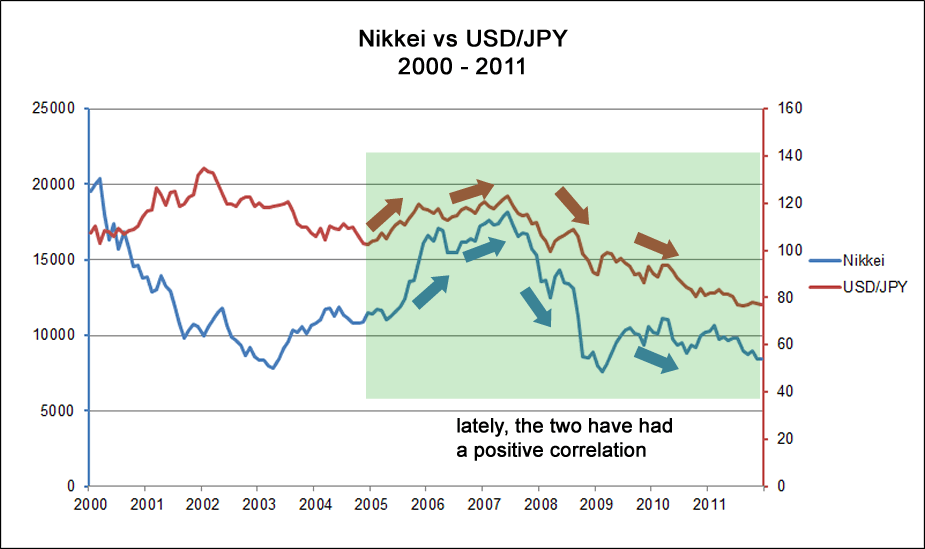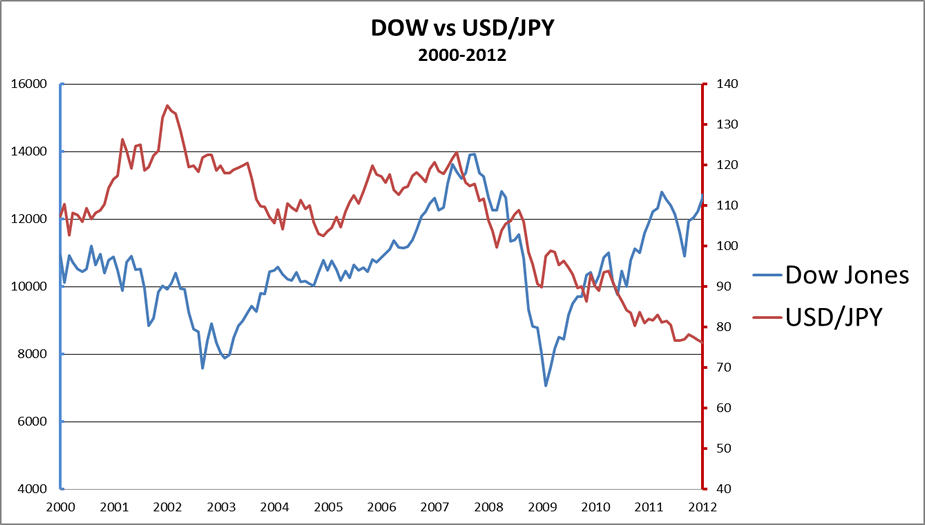Let’s see how the forex market can affect the stock market, specifically stock indexes.
When people talk about the stock market, you generally hear them using a stock market index in reference to the market’s performance.
A stock market index is simply a curated basket of certain stocks. This list of stocks is a way to get a broad measure of what’s happening in the stock market.
In this lesson, we discuss how currencies can have an effect on two specific stock indexes:
- The Nikkei 225 more commonly called the Nikkei, the Nikkei index, or the Nikkei Stock Average is a Japan stock market index that measures the stock performance of Japan’s largest 225 companies listed on the Tokyo Stock Exchange (TSE).
- The Dow Jones Industrial Average, Dow Jones, or simply the Dow, is a U.S. stock market index that measures the stock performance of 30 large American companies listed on the New York Stock Exchange (NYSE) and the NASDAQ.
Nikkei and USD/JPY
Before the global economic recession that started in 2007, when most economies suffered consecutive quarters of negative GDP growth, the Nikkei and the USD/JPY were inversely correlated.
Investors believed that the performance of the Japanese stock market reflected the status of the country, so a rally in the Nikkei led to a strengthening of the yen.
The opposite also held true. Whenever the Nikkei would drop, USD/JPY would rise as well.When the financial crisis hit, however, the relationships just went crazy like Lindsay Lohan.
The Nikkei and USD/JPY, which used to move oppositely, now move in the same direction.
Amazing isn’t it?
Who would’ve thought that stocks would have something to do with the foreign exchange market?
Correlation Between USD/JPY and Dow
Let’s take a look at the correlation between the USD/JPY and the Dow.
Generally, the strength or weakness of the dollar, impacts the U.S. stock market, particularly stocks of large multi-national corporations (MNCs).
For large U.S. multinationals that sell goods and services overseas, a rising U.S. dollar can put a crimp into the profits.
If the dollar is strong, it makes a difference for those companies since it makes it difficult for them to increase prices or even maintain sales at current levels.
That said, you might assume that the USD/JPY and Dow would be highly correlated.However, a look at the chart below would tell you that it isn’t quite the case. While the correlation is positive, it isn’t as strong.
Take a look at the Dow (blue line).
It peaked at 14,000 late in 2007 before dropping like a hot potato in 2008.
At the same time, USD/JPY (orange line) also fell, but not as sharply as the Dow.This serves as a reminder that we should always take into account fundamentals, technicals, and market sentiment, so always read up!
Don’t take correlations for granted because they aren’t a sure-fire thing!






















